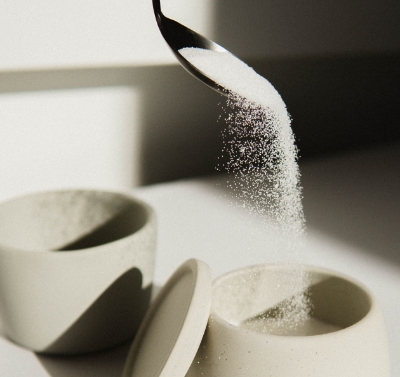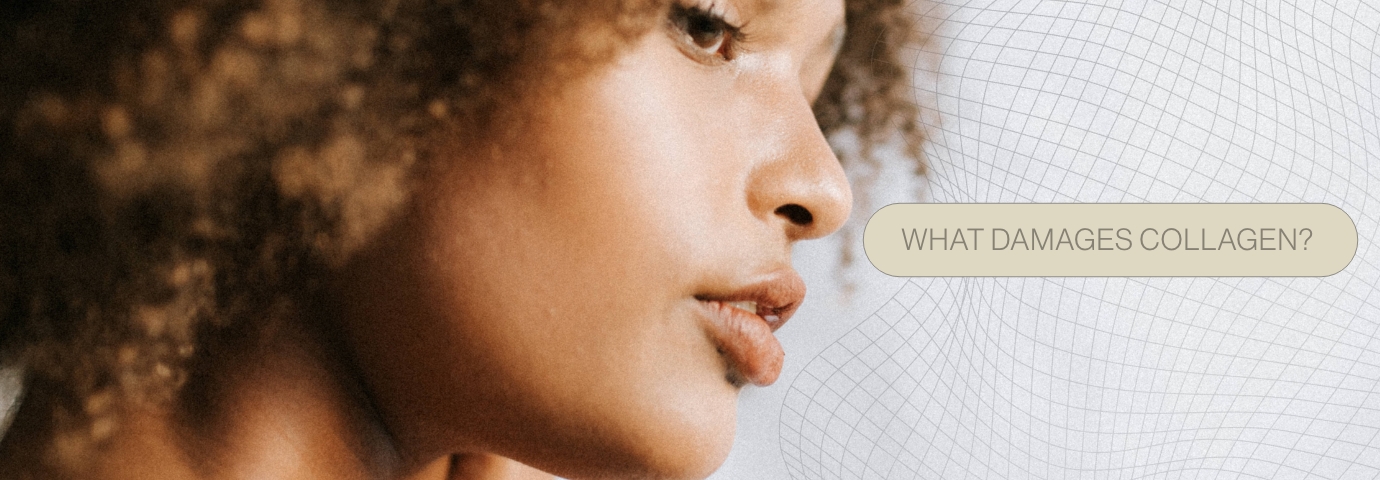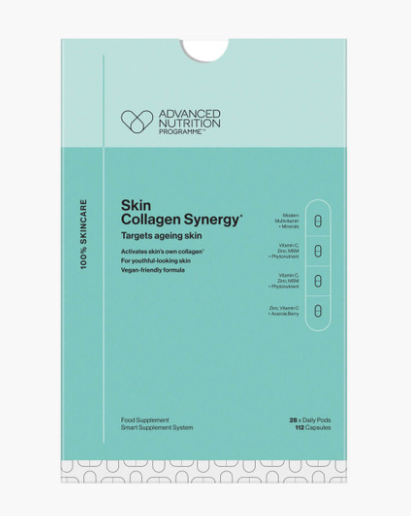Collagen: What can damage this essential protein?
As a key pillar for keeping your dermis looking plump and healthy, collagen has become a huge buzzword in recent years with an influx of skincare formulas harnessing the all-important protein. As you may know, collagen helps make up the structural component of the skin; it plays a crucial role in the strength and elasticity of your largest organ and makes up the building blocks for healthy bones, muscles and connective tissues.
However, there’s a lot that can get in the way of collagen production. Not only are your diet and lifestyle key anchors in the production of resilient collagen, but the ageing process also causes collagen production to decrease. Skin translation: when collagen is damaged or the ageing process inhibits its production, that’s when your skin starts to sag and wrinkles begin to form. For a closer look into the intricate role of collagen, our skin experts reveal all the main culprits which may quell or damage production of this essential protein.
What is collagen?
Quick refresher on collagen: As one of the most important proteins found throughout the body, it’s a building block for bones, muscles and connective tissues and is essential for a strong, resilient body.
There are three different types of collagen. Types 1 and 3 collagen are the key components of the skin, which form a structural framework within the dermis layer to give the skin strength and elasticity.
Your body naturally produces collagen, though levels deplete with age, but you can also get it from foods such as chicken fish, bone broth, tomatoes, egg whites, berries, and citrus fruits.
What are the main factors that damage collagen?
Age
From our mid-twenties we lose 1% of collagen every year. This is because, as we get older, the fibroblasts in the skin become less active which means less collagen and elastin are produced. Not only is there less production but this also impacts the quality of our collagen and elastin too [1].
Blue light from the sun
Blue light is a high energy, high frequency component of the natural light spectrum and is also referred to as HEV light (high energy visible light). Blue light makes up 30% of the rays from the sun.
Research suggests that damage from blue light takes place at this deeper, cellular level and could potentially cause longer-term structural damage to the skin. This can result in damage to collagen production, which leads to fine lines, wrinkles, and sagging skin.

UV rays
As you know, UV rays are harmful for the health of your skin and overall health. Exposure to UV radiation from sunlight and sun beds also leads to the production of reactive oxygen species (ROS) which damage collagen and elastin and accelerate the ageing process [2].
Smoking
Smoking is harmful for your overall health. There are also many chemicals present in tobacco which can damage collagen and elastin [3] and impact skin’s overall health. To add, these chemicals narrow blood vessels preventing healthy nutrients from reaching the skin which can cause dull, grey, and lacklustre skin.
Excessive alcohol
Similarly, to smoking, excessive alcohol will impact your inner and outer health. Research shows that excessive drinking has been shown to accelerate skin ageing by reducing collagen production [4].
Sugar
Eating too much sugar is linked to a number of health concerns. As high sugar consumption increases the rate of glycation, a reaction which can damage collagen, this can also lead to weak, fragile collagen and accelerate the skin’s ageing process [5].

Stress
Unfortunately, research shows that stress levels are on the rise, with more of us feeling stressed daily than ever before. Not only can chronic stress take a toll on your mental health and quality of life, but it also increases levels of the hormone cortisol which, in turn, decreases collagen formation. This can also increase inflammation which can lead to premature ageing of the skin.
Our skin researchers recommend collagen supplements such as Skin Collagen Synergy, which contain the essential collagen co factors to build resilient collagen and ensure a youthful-looking complexion.
Sources
1. Osteoporosis, like skin ageing, is caused by collagen loss which is reversible. National Library of Medicine. April 2020. Sam Shuster
2. Ultraviolet light-induced collagen degradation inhibits melanoma invasion. National Library of Medicine. May2021. Timothy Budden Caroline Gaudy-Marqueste Andrew Porter, Emily Kay, Shilpa Gurung, Charles H Earnshaw , Katharina Roeck Sarah Craig , Víctor Traves Jean Krutmann Patricia Muller , Luisa Motta Sara Zanivan Angeliki Malliri Simon J Furney Eduardo Nagore Amaya Virós.
3. Cigarettes Smoking and Skin: A Comparison Study of the Biophysical Properties of Skin in Smokers and Non-Smokers. National Library of Medicine. TaranehYazdanparast, Hournaz Hassanzadeh, Saman Ahmad Nasrollahi, Seyed Mohammad Seyedmehdi , Hamidreza Jamaati, Amirkia Naimian, Maryam Karimi, Rahim Roozbahani, and Alireza Firooz. February 2019.
4. Impact of Smoking and Alcohol Use on Facial Aging in Women: Results of a Large Multinational, Multiracial,Cross-sectional Survey National Library of Medicine. Greg D. Goodman, Joely Kaufman, Doris Day, Robert Weiss, Ariane K. Kawata, PhD, Julia K. Garcia, Samantha Santangelo, PhD, and Conor J. Gallagher.
5. Sugar Sag: Glycation and the Role of Diet in Aging Skin. National Library of Medicine. November 2015. H P Nguyen, R Katta.


